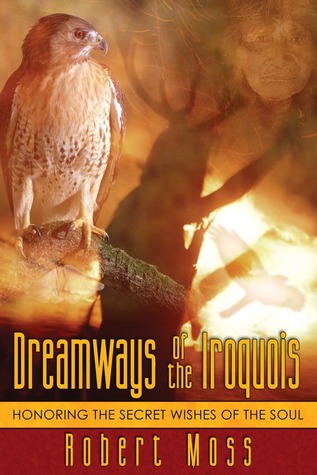We have taken the power of the gods into our hands, our fallible human hands.
The consequences are inconceivable.
-C. G. Jung
…Today the one thing we will not tolerate is history. No; we are each Promethean with a bag of possibilities, Pandoran hopes, open, unencumbered, the future before us, so various, so beautiful, so new - new and liberated men and women living forward into a science fiction. So history rumbles below, continuing its work in our psychic complexes.
-James Hillman
The year is 410, and the Christian-Germanic army of Alaric the Visigoth marches relentlessly on Rome.
Furious at being passed over for promotion into the Roman legions, Alaric has seized the opportunity presented by the execution of Stilicho, Rome’s greatest general, whom the Emperor has foolishly mistaken for a traitor. Tucked safely away at Ravenna, his foresight—as narrow as Aurelius’s had been wide. Honorius does not yet comprehend that the 900-year-old Western Empire is about to fall forever.
What you have just read usually goes by the name of history, that which has already occurred. This is the history known to books and scholarship, the history of events that occupy intervals of linear time. A narrative of the real.
But the psyche lives in a different kind of reality. Situated between the hardness of events and the softness of spirit, the imaginal world of the unconscious unfolds according to circular narratives spun by mythic meanings. In its inexhaustible springs, distinctions of time and space become fictionalized. What holds sway there instead are non-linear laws of metaphor and image, not of might or matter.
Because of this slippery time/space relativity, the unconscious psyche anticipates. In many media, including the privately arranged screenings known as dreams, it loans us snapshots of roads not yet taken, possible futures. It tells us, not where we will go, but where we might go if we won’t change course.
That so many of today’s science fiction books and films paint pictures of an oncoming apocalypse should not only give us pause, but prompt us to wonder: what is psyche trying to tell us? Might we interpret these broadcast daylight images as we would those carried to us in our sleep?
The History Of Things To Come
If films—like myths and folktales—are a culture’s way of dreaming, let us interpret a particular dream series.
Although speculative films about the bomb go back to the Manhattan Project days, the 70s, 80s, and 90s saw the images shifting strangely forward from imminent nuclear annihilation to survival in a world already sickened by nuclear hell loosed on earth. Science fiction examples of this include The Omega Man, The Planet Of The Apes, Mad Max, Blade Runner, and, more recently, The Terminator, Waterworld, The Postman, Star Trek: First Contact, and The Day After Tomorrow. How can we explain this?
Were this dreamed at night, we would track the progression in terms of an unconscious development underway: from the risk of something destroyed to its destruction to the aftermath. We would see it as an imaginal death in progress, the termination of some significant inward structure: an aspect of self, an important relationship, an outmoded style of being. If the film—like the novel as Sartre understood it—takes as its subject the world, the apocalyptic progression suggests that the deep psyche has found it more meaningful to assume that the catastrophe it had been warning us about had already overtaken us.
What does this mean? It means that an existence of post-atomic survivorhood—while not inevitable—is now so likely that the collective unconscious has moved its field of interest from symbolic warnings to imaginal speculations about what we will make of what remains. And whether we realize it or not, you and I are its ragtag survivors in futures fictionally ‘dreamed’ if not yet in literal fact.
This capacity for looking “back” (time/space relativity!) on possibilities unlikely to be avoided could be seen as the psyche’s forehistorical, precognitive capacity. “Fore” not as fortune or foreknowledge, but as foreboding and foreshadowing. They imagine rather than predict, for the future is not set. Some shadows precede rather than follow what casts them.
In Isaac Asimov’s Foundation novels, a visionary named Hari Seldon founds the science of psychohistory (now an actual field), a branch of mathematics that calculates the movements—not of individuals, who have a measure of free will and therefore unpredictability—but of large groups. “Raven” Seldon becomes unpopular when his calculations show that the Galactic Empire is falling. Hauled before a secret court, Seldon is asked how an ancient Empire so powerful and prosperous could possibly be in danger of dissolution.
Seldon cites several factors: a ponderous bureaucracy, a freezing of caste (read: politico-hierarchical appointment system), a lack of creative initiative, etc. What chills me is the following observation—penned by an author who had studied history and whose science fiction ultimately carried forth images from archetypal sources, as all works of the imagination do—
“…the rotten tree-trunk, until the very moment when the storm-blast breaks it in two, has all the appearance of might it ever had. The stormblast whistles through the branches of the Empire even now. Listen with the ears of psychohistory and you will hear the creaking.”
What are we to think about our well-armored and portable legions, our electronicized Coliseum, our Americanized and worldwide military outposts, our Roman-style aqueducts, our Imperial Eagle, our bureaucratic extravagances, our rampaging teens who describe exciting events as “the bomb” and refer to themselves as Goths?
Listen to this with ears sensitized to the voices from the depths and you will hear forehistory, the logical and predictable Santayanic result of historical (and psychological) lessons unlearned; and you will hear it in the making, not down the road, but in the present. Today, in tightening borders, vastly expanded surveillance, a global warming of the spirit as well as the Earth, the ascendancy of theocracy masked as democracy, the renewed push for “tactical” nuclear weapons, and a solidifying alliance of terrified nation-states banding together (the Eastern Coalition of Star Trek: First Contact) to stand up to superpower giantism.
Where else do we hear the thundering below this precipice? In the streets? In the halls of power? In secret bioweapon labs? In slumbering warheads?
In you and me.
The Mares Of Night
Although looking at what brought us to this brink of mutual self-destruction would take us beyond this paper (see my forthcoming book Terrapsychology for a more detailed discussion), we might sum things up in the shape of an axiom:
When the members of a culture that makes no room for the world of dream live in a state of partial slumber, their most unconscious leaders inflict on the world an endless series of nightmares.
Psychically speaking, these serve to take down our Promethean/Faustian/Frankensteinian idealism a peg or two. Spurning the psyche and its unknown deities amounts to hubris. The true matrix of myth and meaning, the depths of what we like to call the unconscious have addressed us since before the written word. Why else the need for ritual, religion, folklore? Everywhere and always human beings have paid creative, pious, and imaginal heed to powers behind and beyond the limited ego... except today, when the "enlightened" ego takes credit for everything, with all things bent to the measure of man. Jung had a good word for this state of mind: inflation.
I will not soon forget a dream I had after a restless evening of cursing dreams for communicating in incomprehensible symbols:
I waded in a pool toward an Asian man who addressed me in French, a language I don't speak. When I shook my head in confusion, he chided me for being a typical American who expected the world to speak English. "But when you visit our country," he added, "you must speak OUR language," at which point he turned into a large tortoise, handed me a piece of paper, and closed his shell. I examined the paper.
It was the Declaration of Independence.
What a powerful reminder of the autonomy of the depths.
Think about the recent craze over the remaking of a film about the Titanic. Could there be a clearer example of hubris than a ship with that particular name sinking on its brazen maiden voyage?
In his paper “Re-Sink the Titanic,” psychologist Glen Slater writes: “As architects of hubris—unmitigated pride and sacrilege—the Titans—a race of giants—fought and were defeated by the Olympian gods, then banished to the underworld… .” It is ironic that the Titanic's sister ship was named the Olympic, and, in spite of an almost identical build, sailed steadily past her sibling’s fate without infamy. When these ships were named, someone failed to take their mythology seriously…
We are gripped by such tales because they are trying to warn us about the unconscious titanism made possible by the automaton satisfaction of being plugged into the mass mind. Disregarding the warning to unplug long enough to undertake a “psychological salvage,” we remain obsessed as though with an open wound. “It is we who have not yet completed this voyage.” (Glen Slater)
For six thousand years we have permitted exactly the wrong kind of people to have and hold power—namely, insecure boys pretending to be men—while being quiet accomplices to their brutally narcissistic and titanic imperialism. If the consequences are almost upon us, they force us to realize at last our kinship with the peoples and landscapes we have subjugated. In the end, everyone is crew, and there will never be enough lifeboats.
What, then, can be done? From a standpoint equipped with night vision, with dream vision (dreams are not about matters political: they are matters political), so much of what passes for reform or activism is actually reactivism: a shutting of the historical barn door after the mares of night have announced their intention to come home. “Consciousness-raising?” This very term is Promethean, a symptom of the verticality worship that brought us to this brink.
Perhaps instead we should take these forehistorical warnings at their word.
Out of the Ashes
Live as though the time had arrived”, Nietzsche advised. If from the deep psyche’s standpoint we are already, in some sense, survivors of the war, how should we act? Perhaps with what could be called a ‘post-apocalyptic aliveness’, the willingness to squeeze from each moment every last drop of its precious essence.
As in the war-ravaged deserts depicted in our films, survivors exercise many choices. Some do nothing and are passive victims of circumstance. Some spread the devastation, inwardly and outwardly, or hide away in denial like cowardly Honorius. Others create oases of decency and compassion, magic and foresight, wondrous adventure and love. We should have learned from patients who have survived terminal diagnosis by doctors that it’s never too late for soulmaking.
Or for a de-titanized humility informed by the graphics of destruction. It would never occur to a consciousness humbled by contact with its archetypal ground of being to play with bombs, lie to a constituency, monopolize resources, damage its environment, oppress an entire gender, marginalize minorities, turn teachings into dogmas, take guidelines for legalisms, or allow its brothers and sisters to go hungry. Because such lapses of responsibility are less a matter of pathology than of immaturity. We are better served here by reflecting on initiation into responsible psychological adulthood, a taking of the caring self out into the world, rather than through vertical models of inward evolution. “It’s time, past time,”—Six Nations chief Oren Lyons strongly advised in a lecture he gave in Santa Barbara recently—“for us to quit playing around and grow up.”
Many people believe that Zeus chained Prometheus for bringing fire to humanity. But the real offence was in doing so without making a pious sacrifice to the gods. Like any egotistical inventor unaware of the powers he invokes, Prometheus faked the sacrifice —failed to give the daimones their due—and was punished for it by himself becoming the sacrifice. He learned from his predicament, however, and was released when he agreed to serve the rightful gods. “Only sacrifice to the deep"--Slater speaking--"keeps the culture afloat.”
If the cinematic arts truly reflect roads not yet taken, then we are faced—not only with “the desert of the real”, the fall of our Western Empire and the sinking societal ship whose apparent seaworthiness tempts fate and Poseidon—but also with images of regeneration that recollect those alchemical theories in which the blackening of decay comprised only the first phase in the distillation of the redemptive Elixir of Life.
Most of Kevin Costner’s long film, The Postman, unfolds in townships devastated by a Third World War, townships visited by a raggy, hungry man carrying a bag of mail. He is, he believes, pretending to be a postman on a mission from “the Restored United States”. But dreams have ways of willing themselves into being, and his is no different. The result is an awakening of culture and freedom connected by a widening band of idealistic young mail carriers. When at last he restores a lasting peace and returns to Bridge City, his mate gives him the child born in his absence, telling him, “Her name is Hope”. So the daughter of adversity is Hope... very fitting in that the feminine has remained so long at the top of the Promethean patriarchy’s hit list. Fitting, also, in that what we exile turns out to be the banished verdancy for which we thirst in our arid after-disaster exile.
Hope, the last occupant of Pandora’s famous box. But only if we keep on dreaming.
In the Star Trek universe, the Third World War destroyed most of the major cities, leaving bands of refugees flung across a world ruined almost beyond repair. It’s significant, by the way, that the first and the last Next Generation television episodes bring the “dangerous, childlike race” of humanity to final judgment in a virtual post-atomic courtroom of the kind that dispensed summary justice during the years after the conflagration that killed countless millions.
And yet the spacecraft whose maiden voyage—so unlike the Titanic’s—did so much to unify what remained of humanity was built, ironically, from the remains of a nuclear missile! Her name too is mythic, this dream with wings, the first ship to take us from the roaring fires of destruction to the silent fires of the stars: Phoenix. ∞









